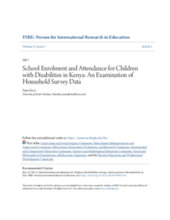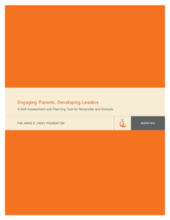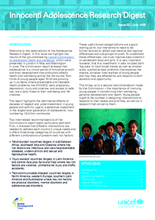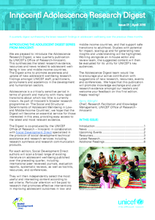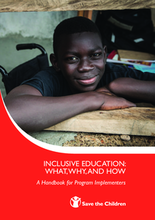Displaying 201 - 210 of 350
Using two sources of household survey data, this paper examines school enrolment and attendance patterns for children with disabilities in Kenya.
This study explored the scholastic performance of orphaned learners aged eight to ten from ten public primary schools in Mankweng Circuit of Limpopo Province, South Africa, utilizing quantitative and qualitative methods that included semi structured interviews, observations and questionnaires.
The current study examined the impact of transitions on foster children’s adjustment to a new placement in out-of-home care in the US.
This paper analyses how social support enhances family resilience in kinship foster families by involving the families in an educational group programme.
This self-assessment and planning tool is intended for nonprofits and schools working with families to provide services that more effectively reach and engage parents in fostering their children's development.
This issue of Innocenti's Adolescence Research Digest includes recent news, events, and other updates as well as links to some of the latest research on adolescents and violence, health, education, street-connected youth and more.
Aiming to support the design of effective intervention strategies, this study examines the hypothesized causal effect of foster children's poor school performance on subsequent psychosocial problems, here conceptualized as economic hardship, illicit drug use, and mental health problems, in young adulthood.
The Adolescence Research Digest is a new quarterly publication by UNICEF’s Office of Research-Innocenti. This synthesizes the latest research evidence, resources and news related to adolescent well-being in low- and middle-income countries.
Large scale studies published in the 1990s and early 2000s generally showed that significant educational disparities existed based on orphan status and a child's relationship to the head of the household. Since the data relied on by these studies were collected, the global community has conducted major campaigns to close these gaps, through the Education for All (EFA) and Millennium Development Goals (MDGs). This study examined these factors using eight country-years from five sub-Saharan African countries (Malawi, Mozambique, Niger, Uganda, and Zimbabwe).
This handbook has been developed specifically for Save the Children program staff, implementing partners, and practitioners supporting education programs in any context.

